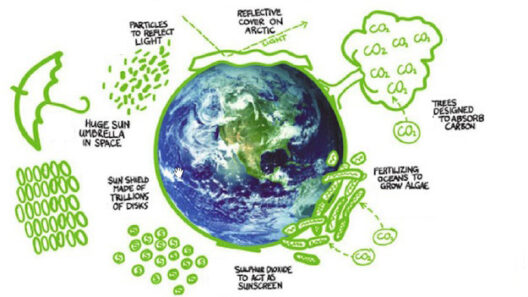In recent years, the discourse surrounding climate change has intensified, with scientists overwhelmingly agreeing that global warming is an existential threat. Yet, a notable faction of politicians remains skeptical or even outright dismissive of global warming. Understanding the nuanced divide among politicians regarding climate change requires an exploration of various factors that contribute to this complex phenomenon, including ideological leanings, economic considerations, misinformation, and social influences.
Ideological Foundations
Political ideologies often shape beliefs about climate change. In many cases, right-leaning politicians align with libertarian or conservative principles that prioritize free markets and limited government intervention. This ideological disposition can lead to skepticism regarding climate change, with doubts about the need for regulatory measures perceived as governmental overreach. Such skepticism is often bolstered by a desire to maintain the status quo, which tacitly discourages advancements in renewable energy technologies that may threaten established fossil fuel industries.
Economic Implications
The economic landscape plays a pivotal role in shaping the perceptions of politicians towards climate change. Many politicians believe that aggressive climate policies could engender job losses within traditional energy sectors, particularly coal, oil, and gas. This anxiety about potential economic repercussions often leads politicians to align with constituencies that prioritize job preservation over environmental concerns. Additionally, powerful lobbying efforts from fossil fuel interests can skew political discourse, creating an environment where opposing climate action becomes a calculated political move rather than a dismissal of scientific evidence.
Moreover, the proponents of climate action often face an uphill battle, advocating for investments in renewable energy and sustainability efforts that may not yield immediate economic benefits. The long-term vision required to address climate change contrasts starkly with the short-term interests that dominate political agendas.
Misinformation and Miscommunication
The proliferation of misinformation vastly complicates the landscape surrounding climate change. Some politicians may genuinely believe in their position due to a steady diet of misleading information disseminated through various media channels. The deliberate spread of disinformation campaigns, often funded by vested interests in the fossil fuel industry, fosters skepticism among constituents. Social media platforms serve as breeding grounds for these misleading narratives, contributing to a cycle of disbelief and further polarizing the political discourse.
Moreover, the presentation of scientific data plays a role in this divide. Complex scientific findings distilled into digestible bites can easily be misinterpreted or manipulated. Politicians often wield this information selectively, presenting it in a light that supports their pre-existing beliefs while disregarding comprehensive studies that highlight the severity of climate change.
Social Influences and Party Polarization
Social influences cannot be underestimated in this equation. Many politicians operate within echo chambers, where their beliefs are reinforced by like-minded individuals. Partisan alignment establishes a cultural identity that compels politicians to align with group norms. This can create a rigid separation between those who advocate for climate action and those who reject the notion of climate change, leading to a deeper societal wedge.
Party polarization has escalated in recent years, with climate change increasingly viewed through a partisan lens. As delineations sharpen, many politicians find it politically expedient to adopt their party’s official stance on climate change, regardless of personal convictions or scientific consensus. The consequences of this divide manifest in legislative gridlock, wherein policies aimed at addressing climate change remain stymied in favor of partisan showmanship.
The Role of Public Opinion
Public opinion exerts considerable pressure on politicians, influencing their stance on climate change. Politicians aware of their constituents’ indifference to climate issues may adopt a “don’t fix what isn’t broken” mentality, thereby sidelining initiatives that call for substantial investments in combating global warming. This is particularly salient in regions heavily reliant on fossil fuel industries, where the potential innovations in renewable energy may be perceived as threats rather than opportunities.
Furthermore, studies have shown that individuals’ beliefs about climate change can be deeply affected by socioeconomic status, education levels, and geographic location. Politicians attuned to these variables may tailor their rhetoric to resonate with constituents who harbor climate skepticism, perpetuating a cycle of denial instead of fostering critical assessments of climate data.
Conclusion: Bridging the Divide
Ultimately, the dichotomy of belief in global warming among politicians reveals a multifaceted issue marked by ideological rigidity, economic concerns, misinformation, social influences, and the sway of public sentiment. Bridging this divide necessitates intricate strategies aimed at fostering informed dialogues that transcend partisan boundaries. Enhancing public education on climate science and promoting transparency in climate-related policies are critical steps. Ultimately, there must be an amalgamation of scientific literacy alongside open communication channels to ameliorate political skepticism and facilitate a collective response to the impending climate crisis.





